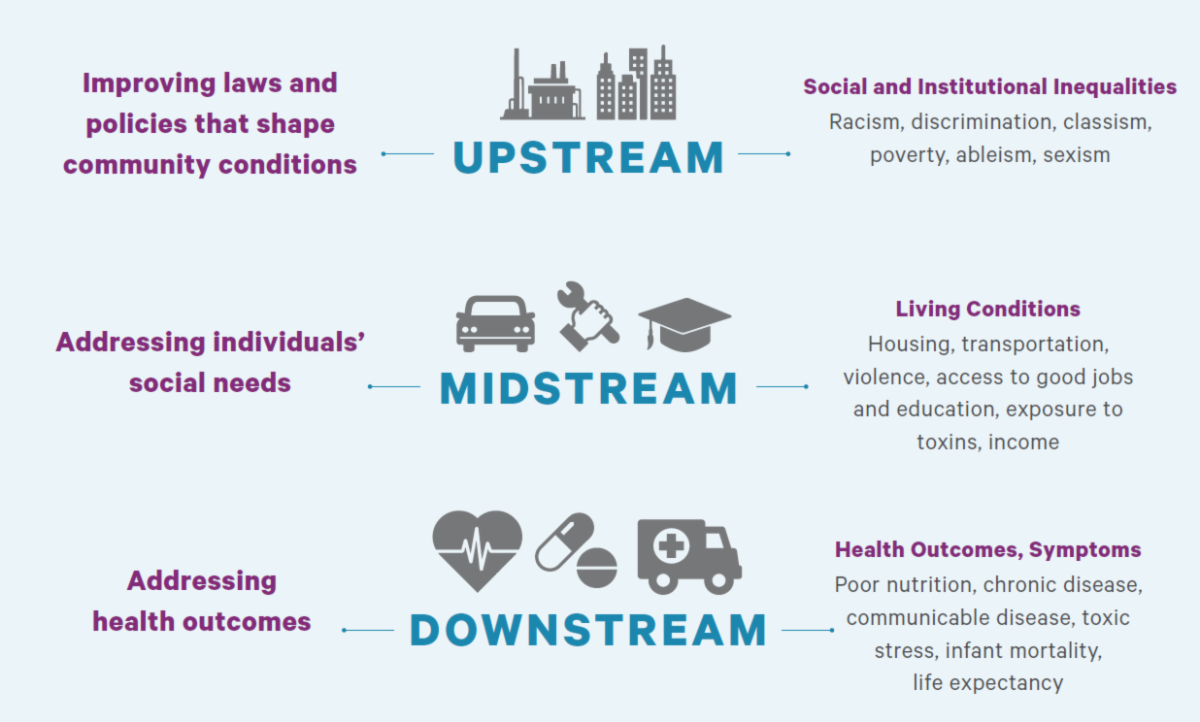 |
| MassBudget: How the state budget and state revenues can improve health equity |
How the state budget, state revenues
can improve health equity
The state budget and the revenues that support it are key tools in helping to improve the health of people in Massachusetts. It also can help improve health equity, in which every person - regardless of their race, ethnicity, gender, zip code, age, or other factor - has an equal chance to thrive. To this effect, the state budget funds public schools, housing, transportation, and other supports that are essential to our well-being.
In our latest report, Going Upstream: How our State Budget, Revenue, and Policies can Improve Health, we use the analogy that "upstream" conditions affect health outcomes "downstream." Lawmakers can create laws that address some of these social needs and social conditions. Recent examples of this include passage of the Student Opportunity Act - the state's landmark law to overhaul its school funding formula - and recent increases to the state's minimum wage.
In our latest report, Going Upstream: How our State Budget, Revenue, and Policies can Improve Health, we use the analogy that "upstream" conditions affect health outcomes "downstream." Lawmakers can create laws that address some of these social needs and social conditions. Recent examples of this include passage of the Student Opportunity Act - the state's landmark law to overhaul its school funding formula - and recent increases to the state's minimum wage.
Education, socioeconomic status, and well-being are cyclically linked. Education tends to pave the way to better jobs, higher wages, and higher socioeconomic status. Those tend to give people better access to healthy foods, green space, and other resources that foster health. Healthier children, in turn, are better able to focus at school.
But meaningful investment in public programs requires a healthy stream of revenue. Lawmakers can do this by raising revenues that ask people with higher incomes to contribute taxes at levels that are closer to what other households pay.
Read the full Going Upstream report
The Massachusetts Budget and Policy Center (MassBudget) produces policy research, analysis, and data-driven recommendations focused on improving the lives of low- and middle-income children and adults, strengthening our state's economy, and enhancing the quality of life in Massachusetts.